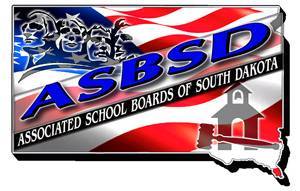A handful of the pieces of legislation being tracked by ASBSD on our Billtracker page during the 2023 legislative session deal with tax reduction or repeal in some manner and their outcome will inevitably be affected by the state’s revenue collections, with adoption of FY24 revenue estimates upcoming.
You can read about the, the school voucher bills here, the juvenile justice bills here, the bills that are moving on here and the bills that have been defeated here.
Here is a breakdown of the tax bills ASBSD is tracking, with the blue text being links to additional webpages with more information, that are still alive this session and a review of revenue collections:
House Bill 1043: Exempts $100,000 from owner-occupied property tax. ASBSD is opposing the bill, which was referred on a 13-0 vote from House Taxation to the House Appropriations committee.
“Schools rely heavily on local effort,” ASBSD Director of Policy & Legal Services Jessica Filler told House Tax members, citing property taxes collected by local public schools make up a large portion of the state aid funding formula for school’s calculation.
“The bill does not affect the dollars that schools receive,” Rep. Trish Ladner, the bill’s prime sponsor said. “It will be made up.”
However, Filler noted “there’s no hold harmless” clause in the bill requiring the legislature to backfill the decrease in local effort from the property tax cut, which is estimated to cost schools “$70-$90 million.”
“That’s a huge hit,” Filler said, adding the loss in local funding “will result in an opt-out” being sought by the school, which will affect everyone tax classifications levy.
House Bill 1075: Repeals the sales tax on groceries. ASBSD is opposing the bill, which was referred on a 12-1 vote from House Taxation to the House Appropriations committee in January. “Without something as a (revenue) replacement, this doesn’t make sense,” ASBSD Executive Director Wade Pogany testified.
House Bill 1095: Lowers sales tax on groceries to 2.5 percent. ASBSD is opposing the bill, which was referred on an 11-0 vote from House Taxation to the House Appropriations committee.
“Any tax cut without replacement funds, we are opposed to,” Filler testified.
The bill’s prime sponsor, Rep. Oren Lesmeister told committee members this would result in a “roughly $54 million reduction” to ongoing revenue collections in South Dakota.
House Bill 1096: Lowers sales tax on groceries to 3.5 percent. ASBSD is opposed the bill, which was tabled on a 10-1 vote by House Taxation. It is the only tax cut or repeal related bill that is no longer moving forward this session.
House Bill 1137: Repeals the Partridge Amendment and lowers the sales tax rate. ASBSD is opposing the bill, which was referred on a 12-0 vote from House Taxation to the House Appropriations committee.
State Economist Derek Johnson estimated the cut would result in a “$168 million” loss in revenue collection for South Dakota.
“We can’t afford to do all these proposals without doing substantial budget cuts,” Johnson said.
Fiscal Year 2024 Revenue Projections: The Joint Committee on Appropriations will meet on Tuesday, February 14 at 8 a.m. to hear revenue projection presentations from the South Dakota Bureau of Finance and Management and the Legislative Research Council and will adopt the revenue projections on Wednesday, February 15.
You can listen to the hearings here: https://www.sd.net/room362/ and revenue projection documents will be posted here: https://sdlegislature.gov/Session/Committee/1169/HearingDocuments.
A few figures that will undoubtedly factor into the revenue projection adoption is the nearly $423 million in reserves the state is currently holding, which is 140 percent increase since 2018, and the current revenue collections through January are exceeding adopted projections by almost $165 million.
The combined amount in reserves and current revenue collection excess totals $588 million. The proposed 5 percent increase in state aid would be a $24 million increase in ongoing funding while an 8 percent increase would cost approximately $40 million.
For updates on these bills and others from the 2023 legislative session, check the ASBSD Billtracker page and ASBSD Blog.
